
The addition of enzalutamide (Xtandi) to androgen deprivation therapy significantly prolonged radiographic progression-free survival compared with ADT alone in men with metastatic hormone-sensitive prostate cancer.

Your AI-Trained Oncology Knowledge Connection!


The addition of enzalutamide (Xtandi) to androgen deprivation therapy significantly prolonged radiographic progression-free survival compared with ADT alone in men with metastatic hormone-sensitive prostate cancer.
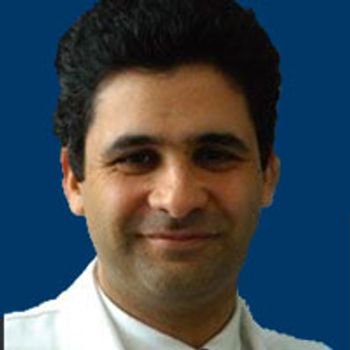
Darolutamide added to androgen deprivation therapy significantly improved metastasis-free survival compared with placebo plus ADT in patients with nonmetastatic castration-resistant prostate cancer enrolled in the phase III ARAMIS trial.
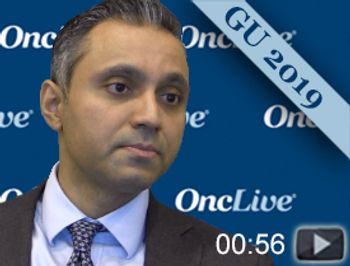
Arjun V. Balar, MD, assistant professor, Department of Medicine, director, Genitourinary Medical Oncology Program, NYU Langone’s Perlmutter Cancer Center, discusses the rationale for the KEYNOTE-057 study in patients with non–muscle invasive bladder cancer.
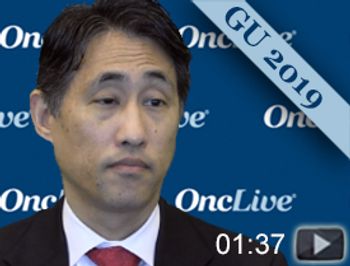
Scott T. Tagawa, MD, Richard A. Stratton Associate Professor in Hematology and Oncology, associate professor of clinical medicine & urology at Weill Cornell Medicine, associate attending physician, NewYork-Presbyterian–Weill Cornell Medical Center, discusses sacituzumab govitecan in the treatment of patients with urothelial carcinoma.
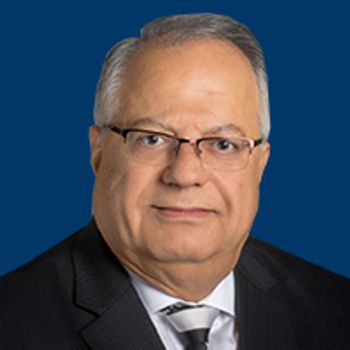
Nivolumab combined with low-dose ipilimumab continued to demonstrate strong responses and a survival benefit at 30 months’ follow-up as a frontline treatment for patients with intermediate- and poor-risk advanced renal cell carcinoma.

The combination of pembrolizumab (Keytruda) and axitinib (Inlyta) was associated with a significantly longer progression-free and overall survival compared with sunitinib (Sutent) in treatment-naïve patients with clear cell metastatic renal cell carcinoma.

African-American men with metastatic castration-resistant prostate cancer treated with novel hormonal therapies—namely abiraterone acetate or enzalutamide—lived 20% longer than their Caucasian counterparts.

The novel targeted radiation therapy lutetium-177 PSMA-617 showed strong clinical activity and the potential to improve survival in heavily pretreated men with PSMA-positive metastatic castration-resistant prostate cancer.

Until more biomarkers are available, the use of tumor mutational burden with PD-L1 expression could help oncologists further personalize immunotherapy choices for patients with non–small cell lung cancer.

Mark A. Socinski, MD, provides an overview of treatment advances in the lung cancer landscape, and highlights where much-needed work still remains.

Findings from the PACIFIC trial have made a significant impact on the treatment of patients with unresectable stage III non–small cell lung cancer, especially in light of the history of treatment options in this setting.
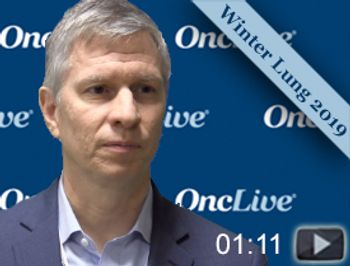
Roy Decker, MD, PhD, associate professor of Therapeutic Radiology, Yale Cancer Center, discusses the current role of radiation therapy in the treatment of patients with non–small cell lung cancer.

Despite the rapidly expanding therapeutic options available in immunotherapy for patients with non-small cell lung cancer, there are still a number of drawbacks to treatment, explaining why not all patients respond to current treatment options.
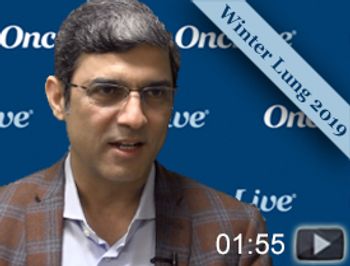
Mohammad Jahanzeb, MD, professor of Clinical Medicine, Hematology/Oncology, Sylvester Comprehensive Cancer Center, University of Miami Miller School of Medicine, discusses the eligibility criteria for immunotherapy trials in non–small cell lung cancer.

Data on many new treatment options have come forward over the past year highlighting the potential to treat more emerging oncogenic drivers impacting smaller subsets of patients with non–small cell lung cancer.

Eric Vallieres, MD, highlights the technological advances of lung cancer surgery and how this impacts the outlook for patients who are candidates for it.
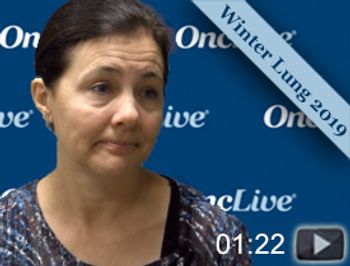
Heather Wakelee, MD, associate professor of medicine (oncology), Stanford University Medical Center, discusses the current state of treatment in patients with non–small cell lung cancer.
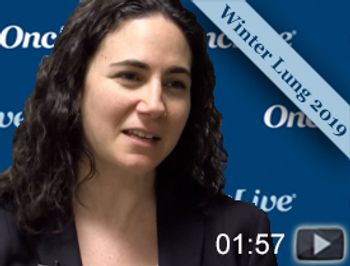
Sarah B. Goldberg, MD, MPH, an assistant professor of medicine at the Yale School of Medicine and Yale Cancer Center, discusses traditional and emerging treatment approaches for patients with mesothelioma.

A growing focus on smaller oncogenic drivers in lung cancer has opened up new treatment options and many potential drugs in development for patients with less common alterations.
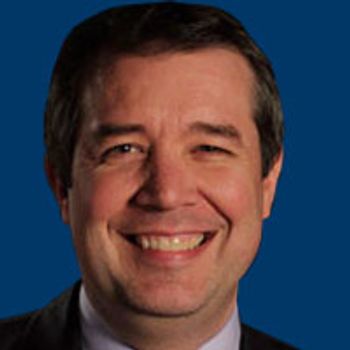
The treatment paradigm for EGFR-mutant non–small cell lung cancer has grown significantly with many EGFR TKIs now available to treat patients with this disease.
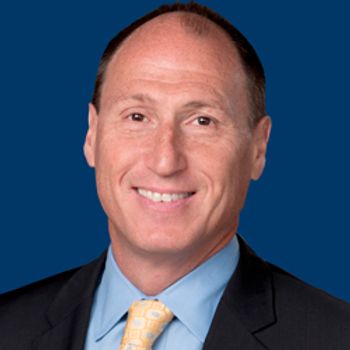
Rogerio Lilenbaum, MD, highlights the current treatment approaches for patients with EGFR-positive non–small cell lung cancer and shed light on the potential for immunotherapy in the space.

Julie R. Brahmer, MD, associate professor of oncology, co-director of the Upper Aerodigestive Department, Bloomberg Kimmel Institute for Cancer Immunotherapy, Johns Hopkins Medicine, discusses managing immune-related adverse events in lung cancer.
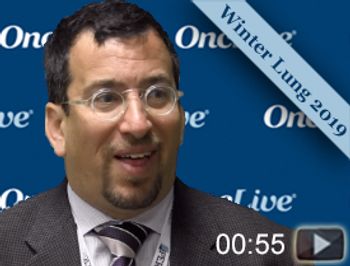
Edward B. Garon, MD, director of Thoracic Oncology at the Jonsson Comprehensive Cancer Center at University of California, Los Angeles, discusses the potential for immunotherapy in the treatment of patients with EGFR-positive non–small cell lung cancer.
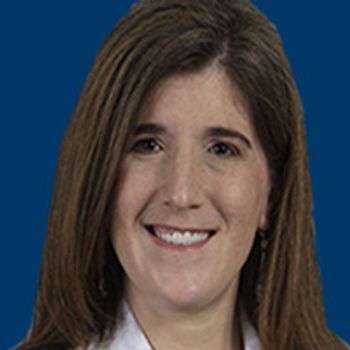
Successful application of immunotherapy in endometrial cancer means identifying the patients with inflamed tumors who will respond to treatment and those who will not, and finding ways to treat noninflamed tumors with immunotherapy agents.

Patients with previously untreated hepatocellular carcinoma lived twice as long if they responded to TKI therapy as compared with patients who did not achieve an objective response.

Jonathan R. Strosberg, MD, discusses the findings from the phase II KEYNOTE-158 trial investigating pembrolizumab in patients with advanced neuroendocrine tumors.
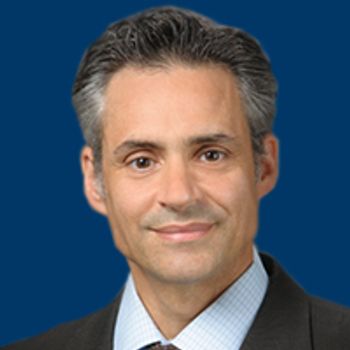
Robert Coleman, MD, highlights recent advances made in gynecologic cancers and provide insight into ongoing research to move the needle forward.

The combination use of durvalumab and tremelimumab plus best supportive care prolonged median overall survival by 2.5 months compared with supportive care alone in patients with advanced refractory colorectal cancer.

The PD-L1 inhibitor durvalumab achieved objective responses in about a fourth of patients with microsatellite instability-high advanced solid tumors, including colorectal cancer.
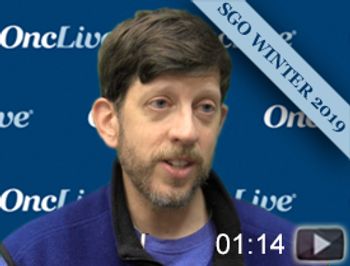
Charles A. Leath III, MD, gyn oncologist at the University of Alabama at Birmingham, discusses the glaring unmet need in cervical cancer.